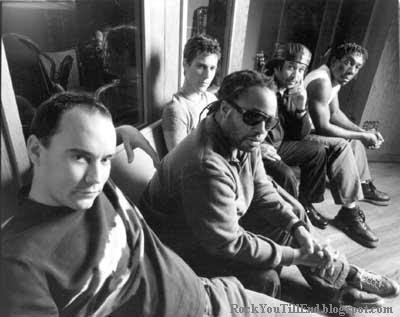Dave Matthews band mp3 download
Easy Guitar Tabs Dave Matthews band
The Dave Matthews Band ignited a quiet revolution in the mid-'90s with a jazzy world-beat stew that appealed to both button-down collegians and peasant-attired neo-hippies looking for a new group to follow. They were the most multicultural and unconventional of all the H.O.R.D.E. ("Horizons of Rock Developing Everywhere") tour acts, helping to launch a jam-band craze that thrives to this day. Their unusual lineup featured violin and saxophone (no lead guitar!), and the exotic configuration allowed them to weave various stylistic strands (jazz, pop, Middle Eastern, African) into an oddly hypnotic sonic tapestry.
When they signed to RCA in 1994, the DMB had already released two discs -- Remember Two Things and Recently, a five-song EP -- on their own Bama Rags label and were well established regionally. Formed in 1991 near the University of Virginia campus in Charlottesville, the Dave Matthews Band -- South African–born singer/acoustic guitarist Mat-thews, sax player Leroi Moore, violinist Boyd Tinsley, bassist Stefan Lessard, and drummer Carter Beauford -- built a loyal following at frat houses and clubs around the Southeast. Their grassroots touring strategy became a template for a rising generation of jam bands who saw little for themselves in the conventional record business.
All but two songs from Remember Two Things were cut live, and the longish, meandering tracks included the fan favorites "Ants Marching" and "Tripping Billies." More to the point, the album served to introduce the DMB's unique musical syntax. Under the Table and Dreaming, their first studio album and major label debut, moved them forward. Producer Steve Lillywhite helped focus and streamline their sound, providing an airtight framework over which the soloists added limber coloration. Matthews' sometimes static songs weren't always as remarkable as the band's grooves and textures, but Under the Table and Dreaming succeeded in bringing the DMB to a larger au-dience, and "Warehouse," "Dancing Nancies," and "Jimi Thing" became cornerstones of their repertoire. Moreover, this unlikely quintet scored an actual pop hit with "What Would You Say," which featured Blues Traveler's John Popper on harmonica.
The group demonstrated further growth and finesse on Crash, fine-tuning its studio persona and bucking the notion that jam bands can't make good records. Crash included the DMB classics "Two Step" and "#41," and netted them their biggest hit, "Crash Into Me."
Before These Crowded Streets marked the point at which the DMB became a good song band as well as a great jam band. Fans, critics, and Matthews himself consider it their quintessential album. It mixed dark, foreboding songs about what Matthews called the "symphony of death" -- i.e., the global bloodletting loosed by religious and political differences -- and playful tunes about lust and desire. The DMB's instrumental blend was particularly entrancing on "Rapunzel," where violinist Tinsley's swirling lines and Moore's snake-charmer sax animated Matthews' peppery, seductive vocal.
The group next recorded and abandoned an album, known to fans and bootleggers as The Lillywhite Sessions (for producer Steve Lillywhite). In its stead, Matthews split to Los Angeles, where he wrote and recorded a new album, Everyday, with producer Glen Ballard (Alanis Morissette, No Doubt), involving the band only in the later stages. On Everyday, the emphases shifted dramatically. Matthews assumed an upfront role on electric guitar, while Tinsley and Moore were relegated more to the background. Producer Ballard cowrote every song and played piano throughout, raising eyebrows in DMB land. Everyday was a jagged little pill for many fans, but it served its purpose of getting the band out of a rut.
On Busted Stuff, the Dave Matthews Band took the unusual step of rerecording their lost album. With a fresh perspective on the material, combined with a tighter approach to arrangements gleaned from their one-off with Ballard, they emerged with a bold, moving musical statement. Matthews' fluid voice ruminated about lost love, emptiness, escape, and "busted stuff" as the band cooked up a quiet storm behind him. "Where Are You Going," featuring 12-string guitar, was as pretty a song as Matthews ever wrote.
The group, looking to outfox bootleggers and satisfy fans, took to releasing live albums early in its career. Including its debut album, half of all band and solo releases have been concert recordings. Among this bevy, Live at Red Rocks 8.15.95 captured them early at every big-time jam band's favorite venue, while Live in Chicago 12.19.98 at the United Center documented a solid show from a much-praised tour in support of Before These Crowded Streets. Listener Supported came from an end-of-tour gig in New Jersey in 1999, while Live at Folsom Field, recorded in July 2001, found them revamping their set with fresh material from Everyday and Busted Stuff. The three-hour, three-CD Central Park Concert is preferable on DVD, as the spectacle -- more than 100,000 fans at a high-profile benefit concert for New York City schools and parks -- is well worth seeing as well as hearing.
Live at Luther College came from one of the solo acoustic tours Matthews occasionally undertakes with guitarist Tim Reynolds. In 2003, Matthews released his first solo studio disc, Some Devil. The material was highly personal, finding its emotional center in a run of songs that worked its way from misery ("Some Devil Some Angel," "Trouble") to salvation ("Grey Blue Eyes," "Save Me"). "Gravedigger," an extraordinary meditation on life and death, won Matthews a Grammy for Best Male Rock Vocal.
Dave Matthews band mp3 download
Easy Guitar Tabs Dave Matthews band



1 comment:
Post a Comment